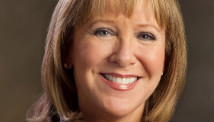The Church of Scientology is also at fault for thinking the advertorial would survive The Atlantic readers' scrutiny, Ian Schafer says.
STORY HIGHLIGHTS
- The Atlantic published and pulled a sponsored Scientology "story"
- Ian Schafer: On several levels, the ad was a mistake
- He says the content was heavy-handed and comments were being moderated
- Schafer: Experimenting to raise revenue makes sense, but standards should be clear
Editor's note: Ian Schafer is the founder and CEO of a digital advertising agency, Deep Focus, and the alter ego of @invisibleobama. You can read his rants on his blog at ianschafer.com.
(CNN) -- "The Atlantic is America's leading destination for brave thinking and bold ideas that matter. The Atlantic engages its print, online, and live audiences with breakthrough insights into the worlds of politics, business, the arts, and culture. With exceptional talent deployed against the world's most important and intriguing topics, The Atlantic is the source of opinion, commentary, and analysis for America's most influential individuals who wish to be challenged, informed, and entertained." -- The Atlantic 2013 media kit for advertisers
On Monday, The Atlantic published -- and then pulled -- a story titled "David Miscavige Leads Scientology to Milestone Year." This "story" went on to feature the growth of Scientology in 2012.

Ian Schafer
Any regular reader of The Atlantic's content would immediately do a double-take upon seeing that kind of headline, much less the heavy-handed text below it, shamelessly plugging how well Scientology's "ecclesiastical leader" Miscavige has done in "leading a renaissance for the religion."
This "story" is one of several "advertorials" (a portmanteau of "advertising" and "editorials") that The Atlantic has published online, clearly designated as "Sponsor Content." In other words, "stories" like these aren't real stories. They are ads with a lot of words, which advertisers have paid publications to run on their behalf for decades. You may have seen them in magazines and newspapers as "special advertising sections."
The hope is that because you are already reading the publication, hey, maybe you'll read what the advertiser has to say, too -- instead of the "traditional" ad that they may have otherwise placed on the page that you probably won't remember, or worse, will ignore.
There's nothing wrong with this tactic, ethically, when clearly labeled as "sponsored" or "advertising." But many took umbrage with The Atlantic in this particular case; so many, that The Atlantic responded by pulling the story from its site -- which was the right thing to do -- and by apologizing.
At face value, The Atlantic did the right thing for its business model, which depends upon advertising sales. It sold what they call a "native" ad to a paying advertiser, clearly labeled it as such, without the intention of misleading readers into thinking this was a piece of journalism.
But it still failed on several levels.
The Atlantic defines its readers as "America's most influential individuals who wish to be challenged, informed, and entertained." By that very definition, it is selling "advertorials" to people who are the least likely to take them seriously, especially when heavy-handed. There is a fine line between advertorial and outright advertising copywriting, and this piece crossed it. The Church of Scientology is just as much at fault for thinking this piece would survive The Atlantic readers' intellectual scrutiny. But this isn't even the real issue.
Bad advertising is all around us. And readers' intellectual scrutiny would surely have let the advertorial piece slide without complaints (though snark would be inevitable), as they have in the past, or yes, even possibly ignored it. But here's where The Atlantic crossed another line -- it seemed clear it was moderating the comments beneath the advertorial.
As The Washington Post reported, The Atlantic marketing team was carefully pruning the comments, ensuring that they were predominantly positive, even though many readers were leaving negative comments. So while The Atlantic was publishing clearly labeled advertiser-written content, it was also un-publishing content created by its readers -- the very folks it exists to serve.
It's understandable that The Atlantic would inevitably touch a third rail with any "new" ad format. But what it calls "native advertising" is actually "advertorial." It's not new at all. Touching the third rail in this case is unacceptable.
So what should The Atlantic have done in this situation before it became a situation? For starters, it should have worked more closely with the Church of Scientology to help create a piece of content that wasn't so clearly written as an ad. If the Church of Scientology was not willing to compromise its advertising to be better content, then The Atlantic should not have accepted the advertising. But this is a quality-control issue.
The real failure here was that comments should never have been enabled beneath this sponsored content unless the advertiser was prepared to let them be there, regardless of sentiment.
It's not like Scientology has avoided controversy in the past. The sheer, obvious reason for this advertorial in the first place was to dispel beliefs that Scientology wasn't a recognized religion (hence "ecclesiastical").
Whether The Atlantic felt it was acting in its advertiser's best interest, or the advertiser specifically asked for this to happen, letting it happen at all was a huge mistake, and a betrayal of an implicit contract that should exist between a publication of The Atlantic's stature and its readership.
No matter how laughably "sales-y" a piece of sponsored content might be, the censoring of readership should be the true "third rail," never to be touched.
Going forward, The Atlantic (and any other publication that chooses to run sponsored content) should adopt and clearly communicate an explicit ethics statement regarding advertorials and their corresponding comments. This statement should guide the decisions it makes when working with advertisers, and serve as a filter for the sponsored content it chooses to publish, and what it recommends advertisers submit. It should also prevent readers from being silenced if given a platform at all.
As an advertising professional, I sincerely hope this doesn't spook The Atlantic or any other publication from experimenting with ways to make money. But as a reader, I hope it leads to better ads that reward me for paying attention, rather than muzzle my voice should I choose to interact with the content.
After all, what more could a publication or advertiser ask for than for content to be so interesting that someone actually would want to comment on (or better, share) it?
(Correction: An earlier version of this article incorrectly said native advertising accounts for 59% of the Atlantic's ad revenue. Digital advertising, of which native advertising is a part, accounts for 59% of The Atlantic's overall revenue, according to the company.)
Follow @CNNOpinion on Twitter.
Join us at Facebook/CNNOpinion.
The opinions expressed in this commentary are solely those of Ian Schafer.







